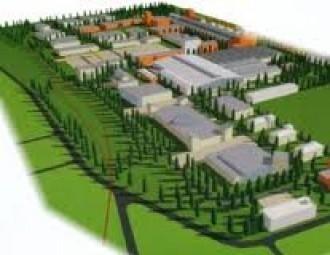Environmentalists demand to check the legality of the industrial park project

Environmental groups “Green Network” and “Eco House” have appealed to the Minsk Regional Prosecutor’s Office over a conclusion by government experts.
The public expertise says that the Chinese-Belarusian Industrial Park project meets sanitary, environmental and design requirements, reports BelaPAN.
The project has been approved despite a number of flaws that have been identified in it, the groups say in their letter. They call on the Minsk Regional Prosecutor’s Office to check whether April’s public discussion of the industrial park’s general layout had been held in conformity with regulations and whether an official report on the discussion was accurate.
A special commission claimed in the report that most residents of the Smaliavichy district were in favour of the construction of the Chinese-Belarusian Industrial Park.
A two-week public discussion of plans for the initial stage of the construction project began on July 9. Necessary information about the plans can be found on the website of the Smaliavichy District Executive Committee.
On July 24, the organizers of the discussion are expected to meet with civil society activists.
An agreement on the establishment of the Chinese-Belarusian Industrial Park was signed in Minsk in September 2011 and ratified by the Belarusian parliament in December that year.
Under Aliaksandr Lukashenka’s edict, the park is to have the status of a “special economic zone” where resident companies will be granted special treatment for 50 years for the purpose of “securing comfortable conditions of doing business and investment attractiveness.”
China is expected to invest $2 billion to $5.5 billion in the project.
Environmental groups have called for the government to pick a different site for the park, saying that it will endanger biological and landscape diversity and increase the level of air pollution in the area not far away from Minsk.
-
03.01
-
07.10
-
22.09
-
17.08
-
12.08
-
30.09



























